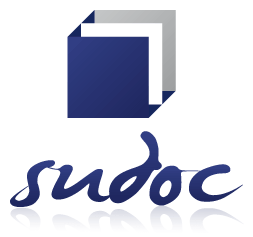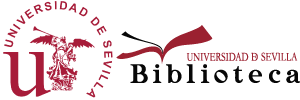Imperativo ético ante la transformación digital de la educación
Ethical Imperative in the Face of the Digital Transformation of Education
Resumen
Prácticas pedagógicas incapaces de mediar éticamente los aprendizajes son inoperantes ante las muchas crisis sociales contemporáneas. A su vez, las urgencias sanitarias debido a la pandemia por COVID-19 permiten identificar la capacidad humanizante de los planes de instrucción que atienden la solicitud ética de formar, empleando los múltiples recursos que las tecnologías de la información presentan. Por consiguiente, la investigación tiene el propósito de analizar las transformaciones digitales de la educación superior sustentadas en pedagogías capaces de habilitar valores éticos en beneficio de sociedades equitativas. Concluye que con la innovación virtual en la formación mejora considerablemente la capacitación de competencias; situación que se coloca al servicio humano cuando las acciones se supeditan a la solidaridad, la escucha dialógica, la tolerancia y respecto como articuladora de sociedades justas.
Descargas
Citas
ABAD-SEGURA, E; GONZÁLEZ-ZAMAR, M.-D; INFANTE-MORO, J. C; RUIPÉREZ GARCÍA, G. (2020). Sustainable Management of Digital Transformation in Higher Education: Global Research Trends. Sustainability, 12(5). Recuperado de: https://doi.org/10.3390/su12052107 en febrero de 2023.
AGASISTI, T; FRATTINI, F; SONCIN, M. (2020). Digital Innovation in Times of Emergency: Reactions from a School of Management in Italy. Sustainability, 12(24), 10312. Recuperado de: https://doi.org/10.3390/su122410312 en noviembre de 2022.
ALAMOS ENCALADA, Ivonne del Rocio; PRIETO PEÑA, Silvana del Cisne; SUÁREZ SEMINARIO, Wilmer; TIMANA ÁLVAREZ, Marcos. (2023). Diálogo como Fortaleza Pedagógica: Instrucción para el Bienestar Social. Revista de Filosofía. Universidad del Zulia. 40 (104)., pp. 215-228. Recuperado de: DOI: https://doi.org/10.5281/zenodo.7644833 en febrero de 2023.
ALENEZI, M. (2021). Deep Dive into Digital Transformation in Higher Education Institutions. Education Sciences, 11(12), 770. Recuperado de: https://doi.org/10.3390/educsci11120770 en diciembre de 2022.
ALHUBAISHY, A; ALJUHANI, A. (2021). The Challenges of Instructors’ and students’ Attitudes in Digital Transformation: A case study of Saudi Universities. Education and Information Technologies, 26(4)., pp. 4647–4662. Recuperado de: https://doi.org/10.1007/s10639-021-10491-6 en noviembre de 2022.
ARANGO-LÓPEZ, J; CERÓN VALDIVIESO, C. C; COLLAZOS, C. A; GUTIÉRREZ VELA, F. L; MOREIRA, F. (2019). Tool for Creating Pervasive Games to Increase the Learning Motivation in Higher Education Students. Telematics and Informatics, 38., pp. 62–73. Recuperado de: https://doi.org/10.1016/j.tele.2018.08.005 en diciembre de 2022.
BALADRÓN PAZOS, A. J; CORREYERO RUIZ, B; MANCHADO PÉREZ, B. (2020). La Transformación Digital de la Docencia Universitaria en Comunicación Durante la Crisis de la COVID-19 en España: una aproximación desde la perspectiva del alumnado. Revista Latina, 78., pp. 265–287. Recuperado de: https://doi.org/10.4185/RLCS-2020-1477 en enero de 2023.
BAUMEISTER, R. F; LEARY, M. R. (1997). Writing Narrative Literature Reviews. Review of General Psychology, 1(3)., pp. 311–320. Recuperado de: https://doi.org/10.1037/1089-2680.1.3.311 en enero de 2023.
BERNATE, J; VARGAS, J. (2020). Desafíos y Tendencias del Siglo XXI en la Educación Superior. Revista de Ciencias Sociales, XXVI(2)., pp. 141–154. Recuperado de: https://doi.org/10.31876/rcs.v26i0.34119 en octubre de 2022.
BHAGAT, S; KIM, D. J. (2020). Higher Education Amidst COVID-19: Challenges and Silver Lining. Information Systems Management, 37(4)., pp. 366–371. Recuperado de: https://doi.org/10.1080/10580530.2020.1824040 en octubre de 2022.
BID. (2021). Transformación Digital en la Educación Superior América Latina y el Caribe. In CEPAL. Recuperado de: https://www.cepal.org/es/publicaciones/46018-transformacion-digital-la-logistica-america-latina-caribe%0Ahttps://repositorio.cepal.org/handle/11362/46018 de octubre de 2022.
BOND, M; MARÍN, V. I; DOLCH, C; BEDENLIER, S; ZAWACKI-RICHTER, O. (2018). Digital
Transformation in German Higher Education: Student and teacher perceptions and usage of digital media. International Journal of Educational Technology in Higher Education, 15(1), 48. Recuperado de: https://doi.org/10.1186/s41239-018-0130-1 en febrero 2022.
BÖRNER, K; CHEN, C; BOYACK, K. W. (2005). Visualizing Knowledge Domains. Annual Review of Information Science and Technology, 37(1)., pp. 179–255. Recuperado de: https://doi.org/10.1002/aris.1440370106 en octubre de 2022.
CEPAL. (2021). Datos y Hechos sobre la Transformación Digital. In CEPAL. Recuperado de: https://bit.ly/3r3Drgg en noviembre de 2022.
ERIKSEN, M. B; FRANDSEN, T. F. (2018). The Impact of Patient, Intervention, Comparison, Outcome ( PICO ) as a Search Strategy Tool on Literature Search Quality: A systematic review. 106(4)., pp. 420–431. Recuperado de: https://doi.org/10.5195/jmla.2018.345 en diciembre de 2023.
FERRARI, A; PUNIE, Y; BRE, B. N. (2013). DIGCOMP : A Framework for Developing and Understanding Digital Competence in Europe. In European Commission. Recuperado de: https://doi.org/10.2788/52966 en enero de 2023.
GAFUROV, I. R; SAFIULLIN, M. R; AKHMETSHIN, E. M; GAPSALAMOV, A. R; VASILEV, V. L. (2020). Change of the Higher Education Paradigm in the Context of Digital Transformation: From Resource Management to Access Control. International Journal of Higher Education, 9(3), 71. Recuperado de: https://doi.org/10.5430/ijhe.v9n3p71 en enero de 2022.
GARCÍA-PEÑALVO, F. J. (2021). Avoiding the Dark Side of Digital Transformation in Teaching. An institutional reference framework for eLearning in higher education. Sustainability (Switzerland), 13(4)., pp. 1–17. Recuperado de: https://doi.org/10.3390/su13042023 en enero de 2023.
HERVÁS-GÓMEZ, C; DÍAZ-NOGUERA, M. D; DE LA CALLE-CABRERA, A. M; GUIJARRO-CORDOBÉS, O. (2021). Perceptions of University Students towards Digital Transformation during the Pandemic. Education Sciences, 11(11), 738. Recuperado de: https://doi.org/10.3390/educsci11110738 en enero de 2023.
HESS, T; BENLIAN, A; MATT, C; WIESBÖCK, F. (2016). Options for Formulating a Digital Transformation Strategy. MIS Quarterly Executive, 15(2)., pp. 123–139. Recuperasdo de: https://bit.ly/33b0E8y en enero de 2023.
HUISSA VERIA, Elizabeth; MARQUINA-LUJÁN, Román Jesús; GÓMEZ FUNDACIÓN, Irma; CASTILLO ROJAS, Selene Violeta. (2023). Salud Mental de los Universitarios durante el Confinamiento Sanitario por COVID-19. ENCUENTROS Revista de Ciencias Humanas, Teoría Social y Pensamiento Crítico., pp. 13-24. Recuperado de: DOI: http://doi.org/10.5281/zenodo.7527442 en febrero de 2023.
LAUFER, M; LEISER, A; DEACON, B; PERRIN DE BRICHAMBAUT, P; FECHER, B; KOBSDA, C; HESSE, F. (2021). Digital Higher Education: A divider or bridge builder? Leadership perspectives on edtech in a COVID-19 reality. International Journal of Educational Technology in Higher Education, 18(1), 51. Recuperado de: https://doi.org/10.1186/s41239-021-00287-6 en febrero de 2023.
MALIQUEO PÉREZ, C; GONZÁLEZ CANDIA, J; MARDONES ESPINOSA, R; ARDILES BRIONES, M. (2021). Gestión de Personas y las Barreras para Innovar en la Transformación Digital. Revista Venezolana de Gerencia, 26(94)., pp. 510–532. Recuperado de: https://doi.org/10.52080/rvgluzv26n94.4 en febrero de 2023.
MARTÍNEZ HUAMÁN, E. L; FÉLIX BENITES, E. D; QUISPE MORALES, R. A. (2022). Innovación Educativa y Práctica Pedagógica Docente en Instituciones Educativas Rurales en el Perú en Tiempos de Pandemia. Telos Revista de Estudios Interdisciplinarios En Ciencias Sociales, 24(1)., pp. 62–78. recuperado de: https://doi.org/10.36390/telos241.05 en enero de 2023.
MATVEEVA, S. V; AKATOVA, N. S; SHCHERBAKOV, Y. I; FILINOVA, N. V. (2020). Digitalization of Higher Education and Professional Development of Educators: Technologies and New Opportunities. Revista Amazonia Investiga, 9(29)., pp. 77–86. Recuperado de: https://doi.org/10.34069/AI/2020.29.05.10 en octubre de 2022.
MKRTTCHIAN, V; GAMIDULLAEVA, L; FINOGEEV, A; CHERNYSHENKO, S; CHERNYSHENKO, V; AMIROV, D; POTAPOVA, I. (2021). Big Data and Internet of Things (IoT) Technologies’ Influence on Higher Education. International Journal of Web-Based Learning and Teaching Technologies, 16(5)., pp. 137–157. Recuperado de: https://doi.org/10.4018/IJWLTT.20210901.oa8 en octubre de 2022.
OECD. (2019). Measuring the Digital Transformation. In OECD. OECD. Recuperado de: https://doi.org/10.1787/9789264311992-en en diciembre de 2022.
OVCHINNIKOVA, N; OVCHINNIKOVA, O; KOLMYKOVA, T; BREDIKHIN, V. (2018). New Generation of Regional Universities in Russia. Istrazivanja i Projektovanja Za Privredu, 16(1)., pp. 132–141. Recuperasdo de: https://doi.org/10.5937/jaes16-16491 en febrero de 2023.
PETERSEN, K; VAKKALANKA, S; KUZNIARZ, L. (2015). Guidelines for Conducting Systematic Mapping Studies in Software Engineering: An update. Information and Software Technology, 64., pp. 1–18. Recuperado de: https://doi.org/10.1016/j.infsof.2015.03.007 en diciembre de 2022.
RODRÍGUEZ-ABITIA, G; BRIBIESCA-CORREA, G. (2021). Assessing Digital Transformation in Universities. Future Internet, 13(2), 52. Recuperado de: https://doi.org/10.3390/fi13020052 en enero de 2023.
RODRÍGUEZ-SANCHEZ, Y; PILOTO-RODRÍGUEZ, R. (2012). Metodología Bibliométrica para Evaluar la Actividad Científica. In Instituto Superior Politécnico José Antonio Echevarría (Issue 2012). Recuperado de: https://www.researchgate.net/publication/278821272_Metodologia_bibliometrica_para_evaluar_la_actividad_cientifica en diciembre de 2022.
RUIZ-ROSERO, J; RAMIREZ-GONZALEZ, G. (2019). Software Survey : ScientoPy , a scientometric tool for topics trend analysis in scientific publications. Scientometrics, 121(2)., pp. 1165–1188. Recuperado de: https://doi.org/10.1007/s11192-019-03213-w en enero de 2023.
SÁ, M. J; SERPA, S. (2020). The COVID-19 Pandemic as an Opportunity to Foster the Sustainable Development of Teaching in Higher Education. Sustainability, 12(20), recuperado de: 8525. https://doi.org/10.3390/su12208525 en diciembre de 2022.
SJÖBERG, J; LILJA, P. (2019). University Teachers’ Ambivalence about the Digital Transformation of Higher Education. International Journal of Learning, Teaching and Educational Research, 18(13)., pp. 133–149. Recuperado de: https://doi.org/10.26803/ijlter.18.13.7 en diciembre de 2022.
TEJEDOR, S; CERVI, L; PÉREZ-ESCODA, A; JUMBO, F. T. (2020). Digital Literacy and Higher Education during COVID-19 Lockdown: Spain, Italy, and Ecuador. Publications, 8(4), 48. Recuperado de: https://doi.org/10.3390/publications8040048 en enero de 2022.
TESAR, M. (2020). Towards a Post-Covid-19 ‘New Normality?’: Physical and Social Distancing, the Move to Online and Higher Education. Policy Futures in Education, 18(5)., pp. 556–559. Recuperado de: https://doi.org/10.1177/1478210320935671 en enero de 2022.
TESTOV, V. A. (2019). On Some Methodological Problems of Tigital Transformation of Education. Informatics and Education, 10., pp. 31–36. Recuperado de: https://doi.org/10.32517/0234-0453-2019-34-10-31-36 en febrero de 2023.
TORRES KOMPEN, R; EDIRISINGHA, P; CANALETA, X; ALSINA, M; MONGUET, J. M. (2019). Personal Learning Environments Based on Web 2.0 Services in Higher Education. Telematics and Informatics, 38., pp. 194–206. Recuperado de: https://doi.org/10.1016/j.tele.2018.10.003 en diciembre de 2022.
TSANKOV, N; DAMYANOV, I. (2019). The Digital Competence of Future Teachers: Self-Assessment in the Context of Their Development. International Journal of Interactive Mobile Technologies (IJIM), 13(12), 4. Recuperado de: https://doi.org/10.3991/ijim.v13i12.11068 en diciembre de 2022.
VALDÉS, K. N; ALPERA, S. Q; CERDÁ SUÁREZ, L. M. (2021). An Institutional Perspective for Evaluating Digital Transformation in Higher Education: Insights from the Chilean Case. Sustainability, 13(17), 9850. Recuperado de: https://doi.org/10.3390/su13179850 en enero de enero de 2023.
VALLEJO-CORREA, P; MONSALVE-PULIDO, J; TABARES-BETANCUR, M. (2021). A Systematic Mapping Review of Context-Aware Analysis and its Approach to Mobile Learning and Ubiquitous Learning Processes. Computer Science Review, 39, 100335. Recuperado de: https://doi.org/10.1016/j.cosrev.2020.100335 en enero de 2023.
VAN DEN BERG, C. L. (2018). Enriching the Information Systems Curriculum to Enable Digital Innovation Capacity. South African Journal of Higher Education, 32(6)., pp. 215–233. Recuperado de: https://doi.org/10.20853/32-6-2985 en febrero de 2023.
VAN ECK, N. J; WALTMAN, L. (2010). Software Survey: VOSviewer, a computer program for bibliometric mapping. Scientometrics, 84(2)., pp. 523–538. Recuperado de: https://doi.org/10.1007/s11192-009-0146-3 en octubre de 2022.
YUREVA, O. V; BURGANOVA, L. A; KUKUSHKINA, O. Y; MYAGKOV, G. P; SYRADOEV, D. V. (2020). Digital Transformation and Its Risks in Higher Education: Students’ and Teachers’ Attitude. Universal Journal of Educational Research, 8(11B), 5965–5971. Recuperado de: https://doi.org/10.13189/ujer.2020.082232 en diciembre de 2022.
ZEGARRA PERALES, Adriana Nataly. (2023). Educación para la Democracia: Formación de Competencias Durante la Instrucción Universitaria. Revista de Filosofía. Universidad del Zulia. 40 (104)., pp. 242-258. Recuperado de: DOI: https://doi.org/10.5281/zenodo.764490 en febrero de 2023.































